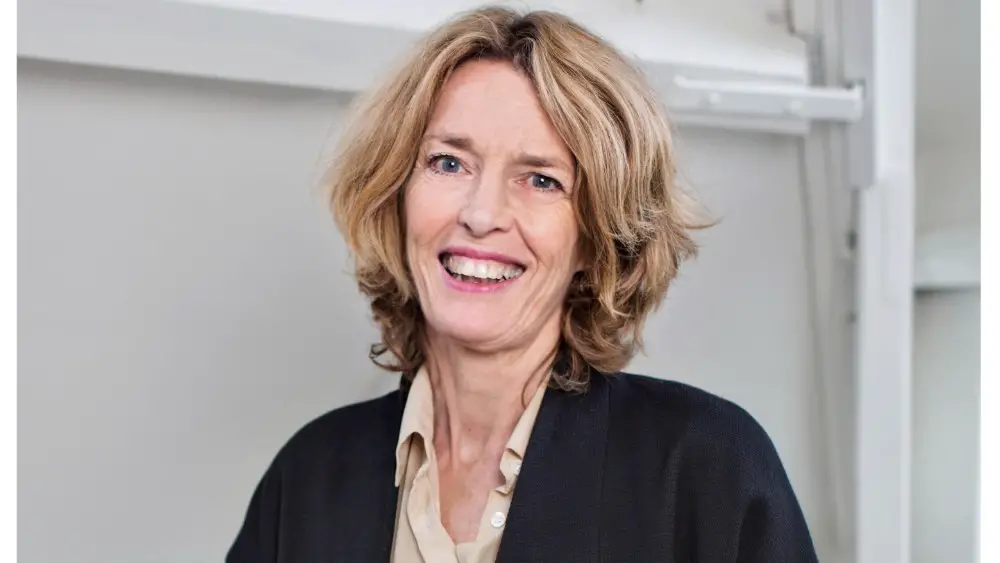Last year’s industry program at the Amsterdam International Documentary Film Festival (IDFA) focused heavily on the livelihoods of documentary makers, as industry budgets shrink and European funding bodies such as public broadcasters invest less. As the festival prepares for its next edition, has the situation changed over the past year? Unfortunately, no, says Adriek van Nieuwenhuizen, Head of Industry Office at IDFA. Masu.
“If you look at what’s happening in the documentary world in Europe and elsewhere, I don’t think things are getting much better,” she says. variety. “There’s also the fact that some countries have political climates that make it more difficult for documentarians to make the films they want to make. It’s very difficult for filmmakers to continue to make money in this industry. Even though the work of these filmmakers has become increasingly important, their livelihoods have not improved.
Coinciding with IDFA dates from November 14th to 24th, the festival’s co-production and co-financing market, the Forum, will be held from November 17th to 20th. The Forum includes elements of Forum Pitch, Rough Cut Presentation, Producer Connection, and IDFA DocLab Forum.
Asked about the project’s most important themes at this year’s forum, director Van Nieuwenhuizen said that while there is no dominant theme per se, he sees many filmmakers taking on social justice issues. He said he was watching. “There are also smaller stories about the under-voiced LGBTQ+ community, the impact of the past on the present… It’s a very diverse mix of projects.”
Among the highlights of this year’s forum, Van Nieuwenhuizen will discuss Anna Kapustina and Aleksandar Mihalkovic’s “Transparency Booth: Echoes of the Future,” a look back at Soviet history and perestroika, and further explore today’s political climate. The Ukrainian project to understand and Ibrahim Omar’s “Dry Sky,” is a personal project carried out in a small village in Sudan.
The forum features several projects from all over the Middle East, including Kamal Al Azraq and Francesca Tosarelli’s “West Bank Project” and Tomer Heyman’s “Issa’s House”. (Selected in last year’s Forum Pitch and will return in 2024 as part of the rough cut) — Van Nieuwenhuizen is reluctant to define the region’s conflicts as the dominant entity in the region. market.
“Creative documentaries usually go beyond everyday news,” she says. “Yesterday’s events don’t immediately translate into tomorrow’s projects. As filmmakers, it takes time to really think about what’s going on in the world.”
After last year’s record-breaking 800 applications, the IDFA team didn’t expect that number to rise even more this year, but it did. Industry leaders say there will be 820 applications in 2024, an “overwhelming” number. “Last year we thought this was a post-pandemic effect. This year’s numbers are rich and huge, but also very painful because we had to turn down so many great projects. ”
“This is not just happening to us at IDFA,” she added. “We’re seeing it on other platforms like ours across Europe. People can ask for clarification in different ways. For example, people can say they’re keen to explore international collaborations. We’re seeing a strong desire for collaboration, and I think that’s great. We’re also seeing unusual collaborations like New Zealand and Nigeria.”
This spirit of collaboration and finding parallel sources of support, such as development programs and funding avenues, is one of the biggest changes in the industry that van Nieuwenhuizen has seen in recent years. “Four or five years ago, a lot of filmmakers were looking at the big streamers, but now we’re seeing that people are open to all of that,” she emphasizes.
“People are realizing that there isn’t just one way to raise money, and it’s also worth considering going down different routes, such as connecting with multiple small businesses and building collaborations.”
In terms of industry talks and sessions, this year’s festival will host two separate discussions on AI titled “AI and Documentary Filmmaking” and “Humans Enter the Chat.” This follows the festival’s opening film, Piotr Vignevich’s “About a Hero,” which explores the creative power of AI through a document based on AI software developed to emulate German film director Werner Herzog. We are investigating the possibility.
Asked about this year’s festival’s emphasis on conversations about AI and new technologies, van Nieuwenhuizen said he’s less interested in answers than in posing questions to the filmmaking community. “We want people to ask themselves, ‘What is available? What does that mean for us as filmmakers? What are the ethical and aesthetic issues?’
Speaking of questions, there are big question marks over this year’s IDFA as the next edition will be the last, with Oluwa Nirabia serving as artistic director and Isabel Arate Fernandes heading the Berta Fund, the festival’s funding body. is floating. “It’s sad because I love working with Isabel and Oluwa,” says the industry boss. “On the other hand, sometimes change brings us something, I’m sure of that. At the moment, I feel a sense of loss that they are still with us, but they are We are very fortunate to have been involved with this festival for so long.”
